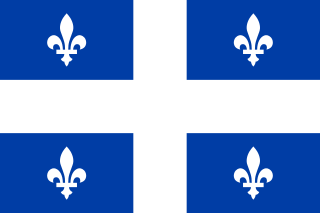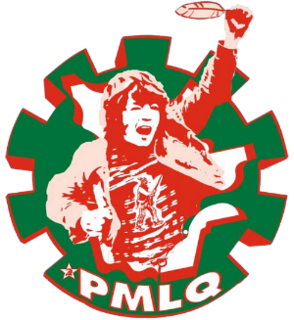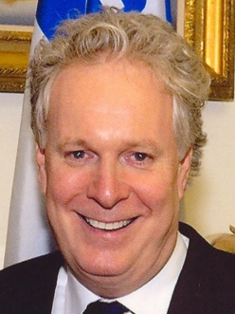The Rassemblement pour l'alternative progressiste or RAP (English: Rally for a Progressive Alternative) began as the Rassemblement pour l'alternative politique, a social movement founded in 1997 as an attempt to unite the progressive and leftist forces in Quebec, Canada. It presented seven independent candidates (including former trade union leader Michel Chartrand) in the 1998 Quebec provincial election, and became a political party in 2000.

Quebec is one of the thirteen provinces and territories of Canada. It is bordered to the west by the province of Ontario and the bodies of water James Bay and Hudson Bay; to the north by Hudson Strait and Ungava Bay; to the east by the Gulf of Saint Lawrence and the province of Newfoundland and Labrador; and to the south by the province of New Brunswick and the U.S. states of Maine, New Hampshire, Vermont, and New York. It also shares maritime borders with Nunavut, Prince Edward Island, and Nova Scotia. Quebec is Canada's largest province by area and its second-largest administrative division; only the territory of Nunavut is larger. It is historically and politically considered to be part of Central Canada.

Michel Chartrand (1916–2010) was a Canadian trade union leader from Quebec.
Contents
In 2002, it joined with the Parti de la démocratie socialiste and the Parti communiste du Québec to form the Union des forces progressistes (UFP). In 2006, the UFP joined with the Option citoyenne social movement to form the Québec solidaire party. [1]
Option citoyenne was an altermondialist, sovereigntist and feminist political organization in the Canadian province of Quebec. The group was created by Françoise David in 2004; David and François Saillant were its official spokespersons. Option citoyenne gave official support to the left-wing Union des forces progressistes, and in 2006 the two groups merged to create Québec solidaire.

Québec solidaire is a democratic socialist, social-democratic and sovereigntist political party in Quebec, Canada. The party and media outlets in Canada usually use the name "Québec solidaire" in both French and English, but the party's name is sometimes translated as "Solidarity Quebec" or "Quebec Solidarity" in foreign English-language media.





